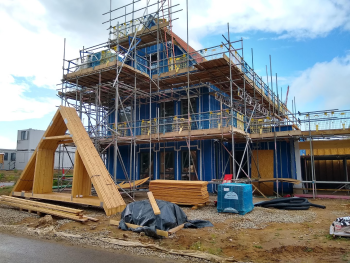Research activity
Research activity in the School focuses on five research centres and a number of clusters.
They attract top-level research-active academic staff and leading international partners, providing a distinctive offering to funders.
Research Centres

Centre for Voluntary Sector Leadership (CVSL)
Provides voluntary sector organisations with access to free leadership development modules and research-led insight.
.jpg)
Centre for the Public Understanding of Finance (PUFin)
Aims to empower the UK public to better manage their finances by providing free tools to help them make sound financial decisions.

Research into Employment and Equitable Futures (REEF)
REEF aims to pioneer innovative research in the field of organisation studies and in interdisciplinary study, to help offer a more equitable future for all members of society.

Centre for Social and Sustainable Enterprise (CSSE)
The Centre for Social and Sustainable Enterprise (CSSE) addresses the connections between entrepreneurial activity, innovation and the transition towards more environmentally and socially sustainable ways of doing business.

Centre for Policing Research and Learning (CPRL)
Aims to improve policing through a wide range of courses and qualifications, and problem-solving research.
Research Clusters
Our research clusters capture key interests and common themes with the School.
We foster innovation and development in research by encouraging the formation of research clusters, with the intention that some of these will develop sufficient critical mass to become research centres.
Gendered Organisational Practice
This research cluster, as part of REEF, takes feminist solidarity as a starting point to create a space where feminists of any gender can share insights and knowledge from academic study and practice.
History and Political Economy of Business and Finance
The History and Political Economy (HYPE) of Business and Finance research cluster brings together scholars who aim at developing a critical approach to business and financial theory. HYPE puts forward an interdisciplinary research agenda using insights from the perspective of political economy and history.
Intelligent Operations and Resilient Supply Chains
The Intelligent Operations and Resilient Supply Chains (IORSC) research cluster is a newly formed group focussing on bringing together various stakeholders in co-creating solutions to supply chain issues in critical and operational areas such as; healthcare, food, textiles, automotive and energy industries.
Rural Economy and Communities Cluster
The Rural Economy and Communities research cluster (REC) aims to develop a community of Open University researchers in the Faculty of Business and Law and beyond to investigate rural livelihoods, rural regional/local development, rural policy and related topics.
Social and Responsible Marketing
The SRM research cluster draws on the Department of Strategy and Marketing’s scholarly expertise in social marketing, marketing ethics, marketing creativity, corporate social responsibility, social enterprise and voluntary sector marketing and sustainable and ethical consumption.
Sustainable Energy: Research and Application
Our newly formed SERA research cluster aims to work alongside external partners to research an emerging and fast evolving specialism in sustainable energy.
Strategic Management and Leadership
This cluster addresses strategy research in its widest sense. We have an inclusive and broad perspective on strategic management and leadership.
Research sub-clusters
Common Good HRM Research sub-cluster
As part of REEF research cluster, Common-Good Human Resource Management (CGHRM) Research sub-cluster is a critical-pragmatic and relational multi-stakeholder approach to work and employment relations. The sub-clusters main focus is on the importance of common good values and the societal purpose of people management in enabling maximum stakeholder empowerment and societal impact.
University-wide research
The OU is the largest academic institution in the UK, and we do research differently. For over 50 years, we have been using our research to transform lives across the four nations of the UK and globally and we strive to find new ways to share this knowledge, connecting and collaborating with others to ignite far-reaching positive change.
The OU’s Open Societal Challenges Programme aims to tackle some of the most important challenges of our time through impact-driven research. The Programme's focus on the themes of Tackling Inequalities, Living Well, and Sustainability aligns with our mission to be open to people, places, methods and ideas.
The Programme's aim is to apply the research excellence of OU academics and our collaborators and partners to some of the most pressing societal challenges facing people across the UK and worldwide to transform lives.
OU research has impact in the real world and deep into space, which has earned us a place in the top three University space science centres in the UK.
The Research Excellence Framework (REF) 2021 assessed 82% of our research as having a world-leading or internationally excellent impact. To find out more about OU research, visit: Research at The Open University.
